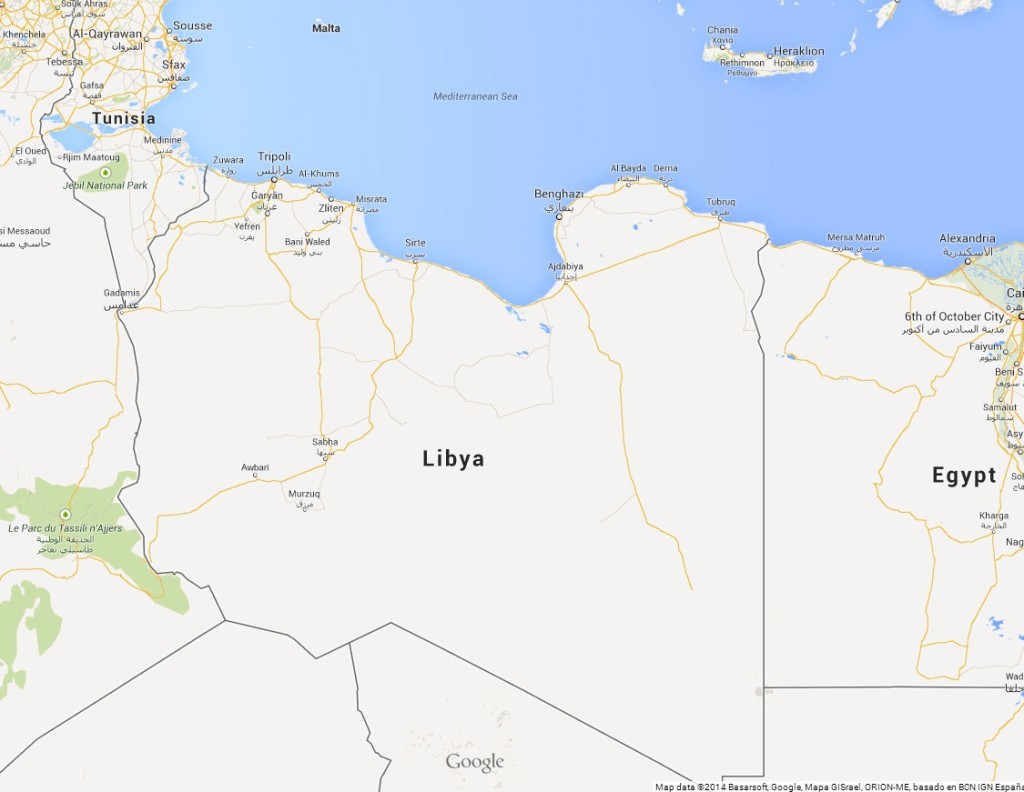
Libya’s state-run oil company warned that it would shut production at all fields if authorities in the divided nation fail to contain an escalation of attacks on facilities that cut crude output to a year-low.
“If these incidents continue, National Oil Corp. will regrettably be forced to stop all operations at all fields in order to preserve the lives” of employees, the company said in a statement.
“National Oil Corp. urges the Ministry of Defense and the Petroleum Facilities Guard to take the appropriate measures to protect oil sites.”
The North African nation’s oil production was reduced by 180,000 barrels a day after a fire at a pipeline that carries crude to the eastern Hariga port, National Oil spokesman Mohamed Elharari said by phone in Tripoli. Hariga, near Tobruk, has oil left in storage for exports and the last ship to load there was the Greek-flagged Minerva Zoe, he said.
Libya, holder of Africa’s largest oil reserves, was producing 350,000 barrels a day in January, Elharari said at the time. The nation may be producing less than 200,000 barrels a day after the pipeline fire. The previous lowest daily average was in March 2014, at 150,000 barrels. A member of the Organization of Petroleum Exporting Countries, Libya was producing 1.6 million barrels a day before the 2011 rebellion that ended Muammar Qaddafi’s 42-year rule.
National Oil Corp., or NOC as the company is known, has a majority stake in all of Libya’s oil and gas producing ventures. It has a 59 percent stake in the company that operates Bahi, an oil field that came under attack on Friday, with Marathon Oil Corp., ConocoPhillips and Hess Corp. holding the remaining 41 percent, according to an NOC statement about the attack.
NOC has said it was neutral in the conflict,which is pitting the Islamist-backed government that captured Tripoli last year against the internationally-recognized government that fled to the eastern region. The Petroleum Facilities Guard is loyal to the internationally-recognized administration of Abdullah al-Thinni.
The bombing of the pipeline followed attacks on fields in central Libya that Ali al-Hasy, a spokesman for the guards, blames on a local branch of Islamic State, the militants that have proclaimed a caliphate in parts of Iraq and Syria and is being fought by a U.S.-led coalition of Arab and Western nations.
Islamic State is expanding in Libya and has created its own institutions in the eastern city of Derna, the Center for Security Policy’s website said, citing U.S. Defense Intelligence Agency Director Lieutenant General Vincent Stewart’s testimony to the Senate last week.
The Islamist-backed government publicly ordered an offensive in December by militias called Libya Dawn that caused a fire on storage tanks at Es Sider, Libya’s largest oil port. It distanced itself from an attack this month on the al-Mabruk field, in central Libya, south of the city of Sirte. More than 10 guards were killed and three workers from the Philippines taken hostage, Libyan officials said back then.
Qaddafi’s hometown, Sirte came under attack on Saturday by an armed group that seized government buildings including the social security, passport delivery department, hospitals and radio and TV stations, the Libyan News Agency said, citing its own correspondent. The employees were told to leave, it said, without identifying the assailants.
“Libya Dawn is saying it has nothing to do with the latest attacks but we see they have arrangement of convenience; Islamic State is doing what the Dawn militias have attempted to do and failed,” said the petroleum guards’ al-Hasy.
Should the flow to Hariga terminal from the Mesla and Sarir fields in eastern Libya remain closed because of the pipeline explosion, Libya would be relying mostly on its offshore production, from the Jurf and Bouri reservoirs, to continue oil exports. Its main onshore field that is still in operation is Elephant, or el-feel, in western Libya.
Recommended for you
